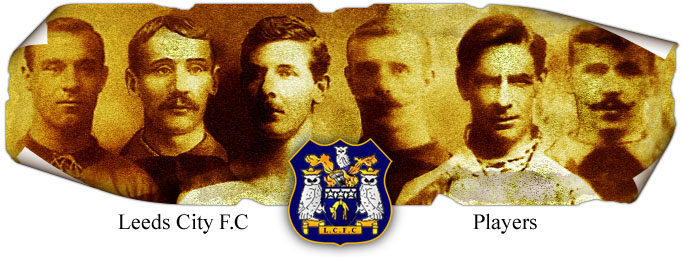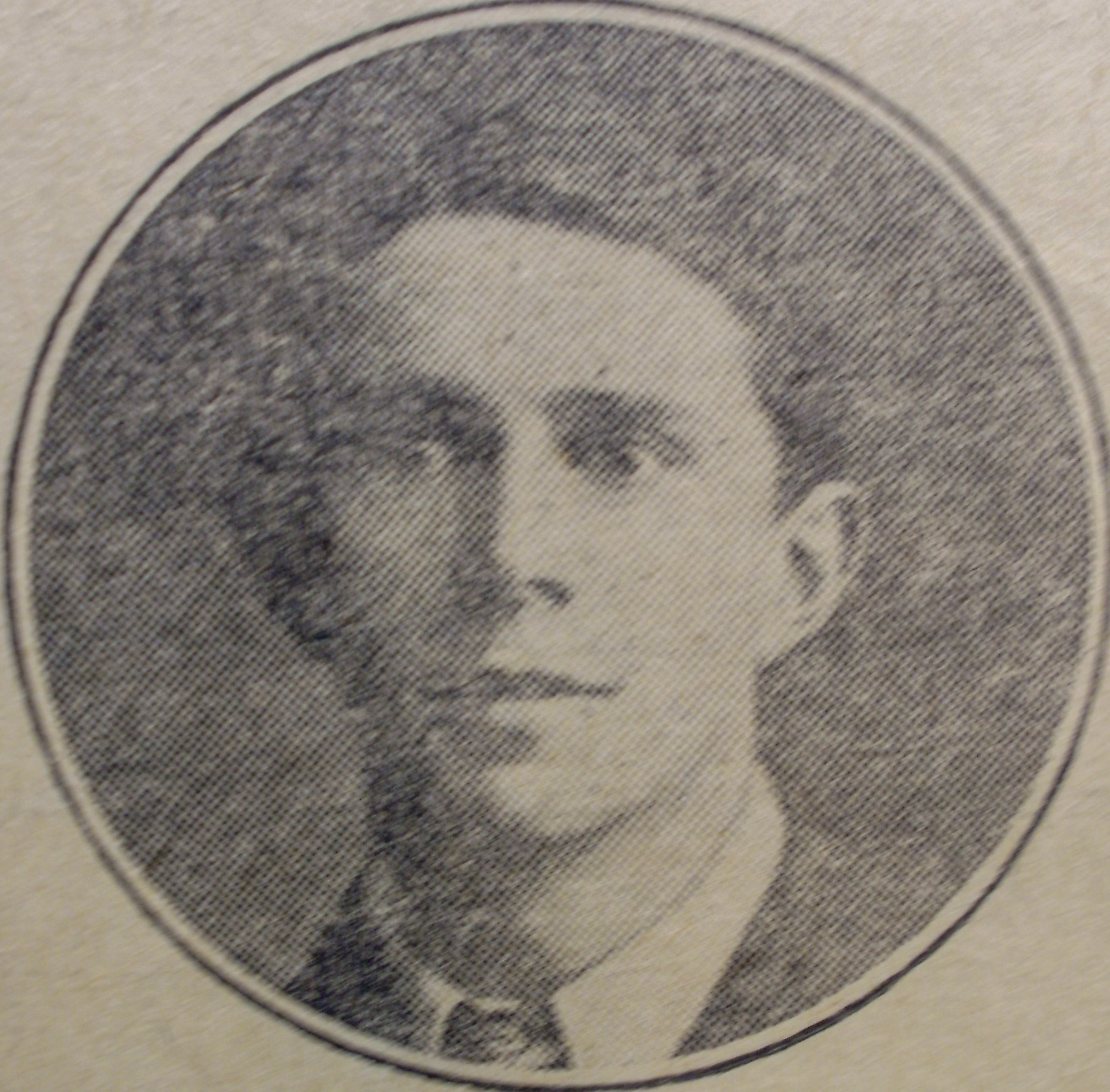
 (Courtesy Neil Roche)
(Courtesy Neil Roche)
Enright: Joseph (Joe)
1910-1913 (Leeds City Player Details)
Inside Forward
Born: Athlone: 16-05-1890
Debut: v Blackpool (h): 03-09-1910
5’7” 10st 4lb (1910)
Enright was a child protogee in his hometown of Athlone and was quickly signed by the Dublin club Shelbourne in 1908 when only eighteen. The prophets were
certainly correct about his potential and just one year later he had twice represented the Irish League in the which prompted the Westmeath Independant to enthuise
“Another international footballer from Athlone has come to light in the person of young Enright, who during the past season played so brilliantly for Shelbourne,”
adding, “Great things are expected.” The Irish League was not up to the standards of The English or Scottish Leagues. This fact is borne out by the results of the two
fixtures. The first on 9th October 1909, against the Football League at Boundary Park, Oldham saw the Irish contain their opponents to just a two goal lead at half time,
before the floodgates opened in the second half and the final score was 8-1. A fortnight later, the Irish League side travelled to Firhill Park, the home of Partick Thistle,
and held the Scottish League goalless in the first half and the final score of 0-2 was an excellent result, for the underdogs. In the 1908-09 season the young Enright had
scored three goals for Shelbourne to finish joint leading goalscorer as the club finished third of seven in the League. 1909-10 saw them slip to equal sixth and it came
as no surprise when Leeds City, under their new Manager Frank Scott-Walford, took their three best players in May 1910, as Mick Foley and George Cunningham and
Enright were all recruited before the start of the 1910-11 season. He went on to become one of two Leeds City players, with Joe Moran, to appear against Scotland on
16th March 1912 and in a 1-4 defeat at Windsor Park, Belfast on 16th March 1912 thereby became the first Leeds players to be capped by Ireland. Unsurprisingly he
had made a scoring debut for Leeds City against Blackpool on 3rd September 1910, scoring the opening goal in a 2-1 defeat at Elland Road, in which many new Irish
prospects were on view for their first Leeds City game. As well as his two former Shelbourne compatriots, there was Alex Creighton of Distillery at left back, Right-Half
John Harkins from Scotland and Billy Gillespie, from Derry, who later developed into the best of the debutants. Flaneur reported in the Leeds Mercury: “Only Enright of
the new men really did the Ould Country any real credit, and he and Croot were easily the best of the line”. Wanderer’s report in the Mercury of the 3-2 defeat at Leeds
Road, by Huddersfield Town on 24th September 1912 was typical of the reviews the Irishman received all season long: “Little Enright, as one so frequently hears him
called, was perhaps as good as any of the forwards. Plucky, energetic and tricky, he was always a source of danger.” He soon established himself, not only as a regular
in the Leeds team but also as a regular goal-scorer with ten in his first season and twelve in his second season and on both occasions he finished runner-up to the ace
striker Billy McLeod in the Leeds goal-scoring charts. His third season with Leeds saw him on the decline, finding the net just once in his six appearasnces. He had
remained out of favour and had not started a game in the 1913-14 season. So it came as no surprise when he left Leeds in October 1913 to join Non-League Newport
County for £50. He seemed to be unable to remain a prolific scorer while he was Somerton Park and scored five in the Southern League, one in the F.A. Cup and three
in the Welsh Cup. In April, County's star signing, Joe Enright, made the headlines for all the wrong reasons. He was summoned for being drunk and disorderly in Skinner
Street and pleaded to not being drunk, but being 'disorderly under protection', for which he was 'very sorry'. The incident at 11.35pm on a Sunday night had seen the
small and slight Enright, who was hardly built for it, in a fight with another who had called him an 'opprobrious name'. Despite the police officer saying he was 'crying drunk',
he claimed he had only partaken of two small bottles of stout. The judge was unconvinced and fined him 10s 6d or to serve fourteen days. He was then literally sent to
Coventry, signing for them at the end of the season and freeing up some cash, as he was the first player on the maximim £4 wage. Newport had a good run towards the
end of the season losing only two games of the final tweve fixtures. Newport were quite happy to let Enright depart soon after and he moved to Southern League Second
Division, Coventry City in the 1914 close season, reuniting him with his former Leeds City manager, Frank Scott-Walford, who had been appointed manager of his new
club, where he scored nine goals in twenty-two appearances before the onset of the First World War forced the abandonment of peacetime football at the end of the
season. He no doubt found pleasure in scoring four times in City’s 10-1 drubbing of his former club Newport County at Highfield Road on 28th November of that year.
He scored seven goals in twenty-one League appearances and one goal in one F.A. Cup tie while at Highfield Road. During the War Enright served with the Army in the
Royal Army Ordinance Corp until 1919, playing Army football and also regularly guesting with his hometown club, Athlone Town, and continued to play for them after the
War’s end until his retirement.
| Appearances | Goals |
| League 77 | 23 |
| F.A. Cup 3 | 0 |